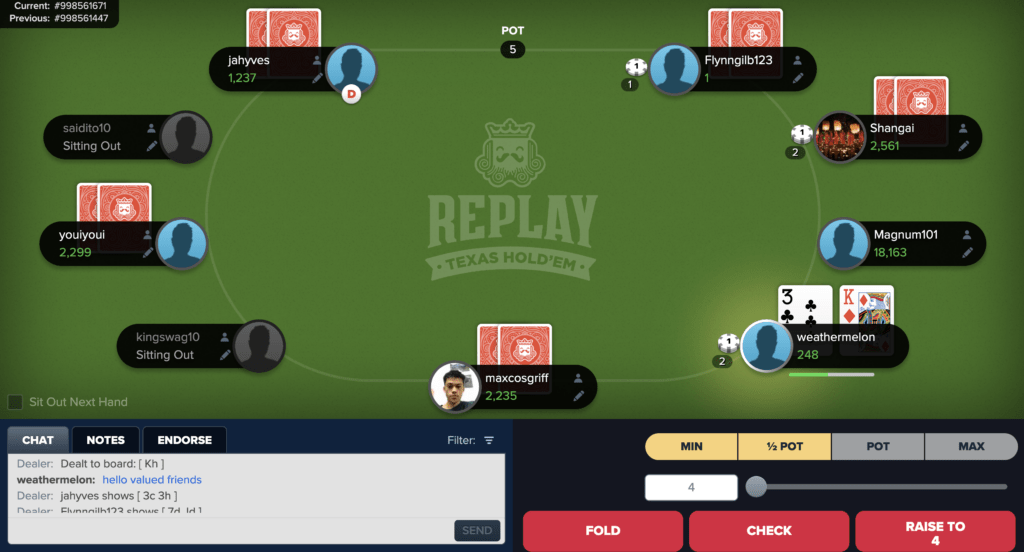For this critical play, I played poker, specifically Texas hold ’em, online at replaypoker.com. When choosing whether to match a bet, raise, or fold, the player needs to consider what their chance of victory is. Players with a small chance of victory might still be prompted to bet large amounts if they feel that they will miss out on a possible chance-defying victory. In one of my poker matches, I folded due to having poor cards in my hand, a 5 and a 6. However, later on a 5 and 6 appeared among the community cards, meaning I almost certainly would have won. This created a feeling of remorse that I did not want to experience again. This sort of feeling may prompt players to bet large amounts in hopes of an unlikely victory, even when it makes little sense. While it can be thrilling to hope for an unlikely win, this can help to put players at risk for addiction. If players have already bet large amounts of money, they may be unwilling to fold due to the sunken cost fallacy. I ended up betting large amounts, even when I knew I would likely loose, because I had already bet large amounts and felt that I was too invested. This can also help to put players at risk for addiction.
One way in which poker differs from other games of chance is that a large aspect of the game is attempting to understand the habits and intentions of the other players. As one plays the game, they attempt to understand the mannerisms and betting habits of the other players. Players can also attempt to confuse other players by betting large amounts when it makes little sense. These elements of the game can add a degree of fun; it can be enjoyable to feel that you have read through somebody’s deception, or managed to trick other players. However, these elements can also promote addiction risk, as players may become desperate to best other players.




